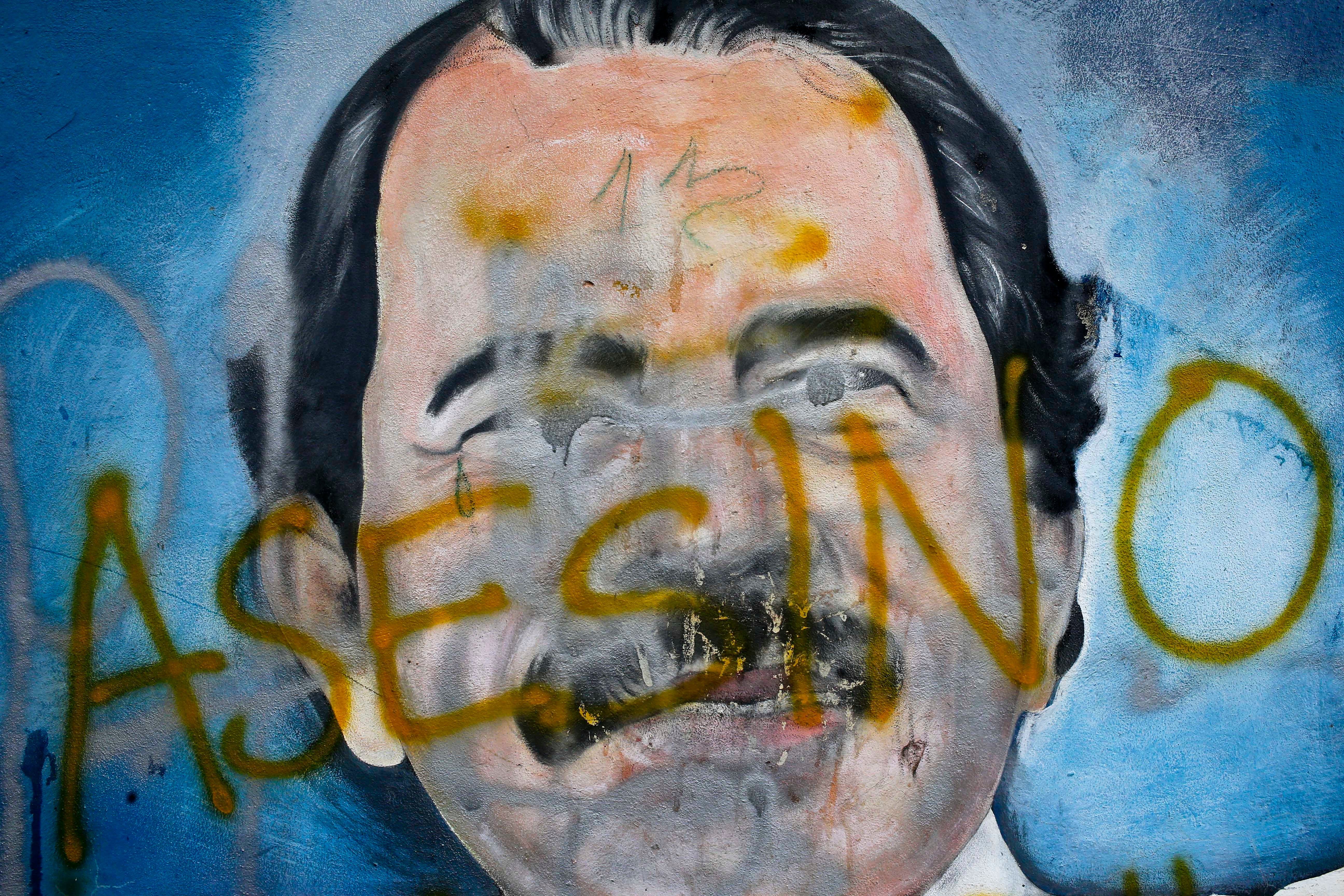Media, NGO offices taken over by government in Nicaragua
Two media outlets and several non-governmental groups in Nicaraguas say their offices have apparently been confiscated by the government of President Daniel Ortega, with placards posted at the properties reading “Property of the Health Ministry.”

Your support helps us to tell the story
From reproductive rights to climate change to Big Tech, The Independent is on the ground when the story is developing. Whether it's investigating the financials of Elon Musk's pro-Trump PAC or producing our latest documentary, 'The A Word', which shines a light on the American women fighting for reproductive rights, we know how important it is to parse out the facts from the messaging.
At such a critical moment in US history, we need reporters on the ground. Your donation allows us to keep sending journalists to speak to both sides of the story.
The Independent is trusted by Americans across the entire political spectrum. And unlike many other quality news outlets, we choose not to lock Americans out of our reporting and analysis with paywalls. We believe quality journalism should be available to everyone, paid for by those who can afford it.
Your support makes all the difference.Two media outlets and several non-governmental groups said Wednesday that their offices apparently were confiscated by the government of President Daniel Ortega with placards were posted at the properties reading “Property of the Health Ministry.”
The offices in most cases were closed by the government following the 2018 protests against Ortega and have been occupied by police since then.
The signs appeared outside the television station 100% Noticias and the magazine Confidencial as well at the offices of NGOs Popol Na, Center for Health Information and Advisory Services, and the Nicaraguan Center for Human Rights. The signs indicated the properties would be used as maternal welfare or drug treatment centers.
It was the latest step by the Ortega government limiting freedoms for the press and the opposition.
Journalist Carlos Fernando Chamorro, owner of the building where Confidencial had its offices, said that “the regime is officially practicing confiscation, in violation of Nicaragua's constitution.”
“We have lived in a state of total illegality for two years, and today Ortega has confirmed there is no rule of law in Nicaragua,” Chamorro said.
Miguel Mora, the director of 100% Noticias, wrote in his social media accounts that “in practice, this is bald-faced robbery. No expropriation order exists ... there has been no legal ruling about the property of 100% Noticias.”
At least 325 people were killed in anti-government protests in 2018, according to the Inter-American Commission on Human Rights.
Starting in April 2018, Nicaragua’s economy was devastated by nearly five months of unrest initially sparked by cuts to social security benefits but which quickly evolved into calls for Ortega to step down and allow early elections.
Media outlets and NGOs accused by Ortega of supporting the protests were raided by police and in some cases shuttered.
On Monday, Nicaragua’s ruling party-dominated Congress approved a law that would essentially ban opposition candidates from running in the 2021 presidential election. The law gives Ortega the power to unilaterally declare citizens “terrorists” or coup-mongers, classify them as “traitors to the homeland” and ban them from running as candidates.
Ortega initially led Nicaragua from 1979 to 1990 following the Sandinista revolution that ousted the Somoza dictatorship. He returned to the presidency in 2007 after three failed election attempts, and he won reelection in 2011. He then sidestepped term limits to get himself reelected in 2016, and packed courts and government agencies with allies. His Sandinista party controls the courts and the legislature.
In October, Congress approved legislation mandating prison sentences for those who use online platforms to spread false information or information that could raise alarm among people. The bill raised alarm among opposition and human rights groups, who described it as a threat to free speech.
The Special Cyber Crimes Law establishes prison terms of two to four years for “those who promote or distribute false or misleading information that causes alarm, terror, or unease in the public.” The law allows the government to define what information fits that description.